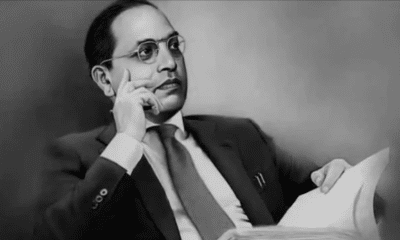History & Architecture
Dr. B.R. Ambedkar: A Visionary for Justice, Equality, and the Modern World
Dr. Bhimrao Ramji Ambedkar, one of India’s most transformative leaders, was not only the principal architect of the Indian Constitution but a philosopher, reformer, economist, and human rights champion whose legacy continues to inspire millions around the globe. As India and the world grapple with systemic inequality, polarization, and identity struggles, Ambedkar’s teachings remain strikingly relevant — offering a blueprint for both individual empowerment and societal reform.
“Be educated, be organized and be agitated.”
— Dr. B.R. Ambedkar
“Educate, Agitate, Organize” — A Mantra for Change
Among being the architect of the Indian Constitution, Dr B.R. Ambedkar’s most powerful message was his rallying cry: Educate, Agitate, Organize. At a time when education is increasingly seen as a tool for both liberation and disruption, his emphasis on education as the foundation for empowerment is more urgent than ever. But education alone, he believed, was not enough. One must also agitate — not violently, but by questioning unjust systems — and organize, forming collectives to demand accountability and justice. In today’s social movements and activism age, this triad remains a roadmap for lasting change.
India Remembers Dr. B.R. Ambedkar: A Legacy of Equality, Justice, and the Constitution
Fighting Inequality in All Its Forms
Dr. Bhimrao Ramji Ambedkar was a relentless crusader against caste discrimination. But his fight was far more expansive. He challenged any form of injustice — whether based on gender, religion, class, or ethnicity. His belief in the fundamental equality of all human beings placed him ahead of his time and aligned him with the world’s greatest civil rights figures. In a global society still scarred by systemic racism, gender inequality, and religious intolerance, Ambedkar’s philosophy is a clarion call to speak out and stand firm against oppression.
The Constitution and the Power of Law
As the architect of the Indian Constitution, Ambedkar believed deeply in the transformative power of democratic institutions. His vision ensured that rights to equality, freedom, and justice were not left to interpretation but codified into law. In today’s politically volatile climate, where democratic values are under strain worldwide, his commitment to institutional justice reminds us that real change requires moral courage and legal frameworks.
Rationality Over Blind Faith
Ambedkar’s legacy also includes his unwavering belief in reason and scientific thought. He was fiercely critical of blind tradition and superstition, urging society to move toward rational, ethical living. At a time when misinformation and religious extremism can easily spread online, his call for critical thinking is not just relevant—it’s essential.
Self-Respect and Personal Dignity
For Ambedkar, the struggle was as much about restoring dignity as it was about gaining rights. He insisted that the oppressed reclaim their humanity with confidence and pride. His message of self-worth speaks directly to today’s conversations around mental health, identity, and personal empowerment.
A Legacy of Courage and Transformation
Born into the harsh realities of untouchability, Ambedkar rose to become one of his time’s most educated and respected leaders- the Father of the Indian Constitution. His life is proof that transformation is possible — but it demands grit, vision, and unyielding courage. As we navigate the complexities of the 21st century, remembering Ambedkar is not just about honouring history. It’s about applying his lessons to our lives and to the world we wish to build.
His words still echo — perhaps louder than ever.



































